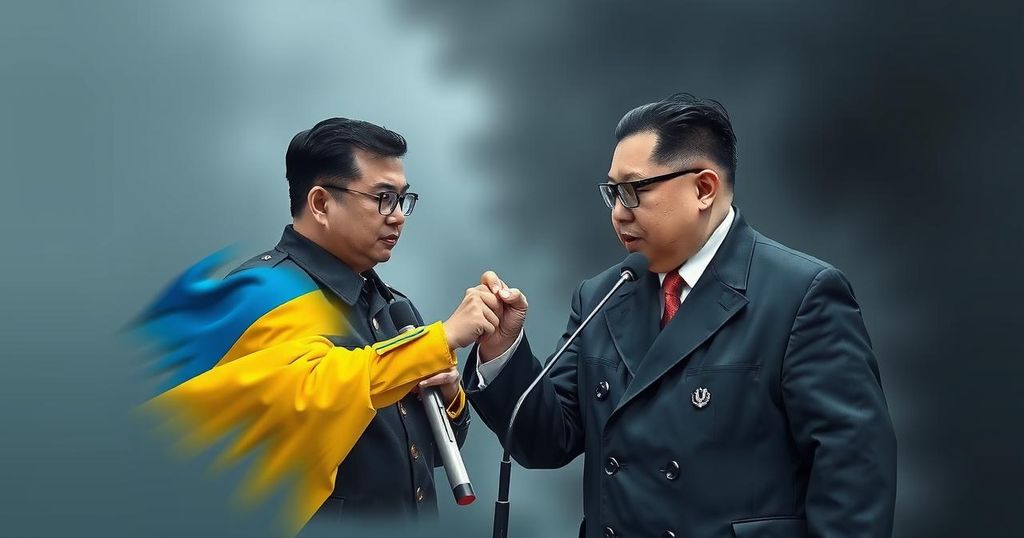World news
ANTONY BLINKEN, BLINKEN, DEFENCE, ENERGY INFRASTRUCTURE, EU, EUROPE, EUROPEAN UNION, GERMANY, JOSE, JOSEP BORRELL, KA, KOREA, MIDDLE EAST, MILITARY, MILITARY SUPPORT, NORTH AMERICA, NORTH ATLANTIC COUNCIL, RUSSIA-UKRAINE WAR, UNITED STATES, US, US STATE DEPARTMENT, WAR, WHITE HOUSE
Marisol Gonzalez
0 Comments
U.S. Signals Strong Response to North Korean Engagement in Ukraine Conflict
The U.S. Secretary of State Antony Blinken has indicated a need for a decisive response to the involvement of North Korean troops alongside Russian forces in Ukraine. The situation arises amid concerns about the future of U.S. aid to Ukraine, particularly with the potential return of Donald Trump to the presidency. This highlights the important geopolitical relationships affecting the conflict, notably the roles of China and Iran.
In light of recent developments, United States Secretary of State Antony Blinken has issued a warning regarding the deployment of North Korean soldiers alongside Russian troops in the ongoing conflict near Ukraine. During discussions with NATO and EU officials in Brussels, Blinken emphasized that this incorporation of North Korean forces into combat operations necessitates a “firm response.” Reports from the U.S. State Department confirmed the presence of over 10,000 North Korean troops in eastern Russia, with a majority reportedly engaging in combat in the Kursk Oblast region, signaling a significant escalation in the conflict. Further complicating matters, NATO chief Mark Rutte underscored the vital involvement of China in bolstering Russia’s military efforts, alongside Iranian arms supplies financed by Russian resources, a situation that also threatens stability in the Middle East. As Blinken convenes with other leaders, concerns are mounting regarding the future of U.S. support for Ukraine, especially with the potential political repercussions of a forthcoming Trump administration. Historically, former President Trump has expressed admiration for President Vladimir Putin and criticized U.S. financial commitments to Ukraine. Observers note the potential for his upcoming presidency, beginning January 20, to lead to shifts in U.S. foreign policy. Speculation surrounds Trump possibly appointing Senator Marco Rubio as Secretary of State, whose views on foreign aid reflect a desire for pragmatism in U.S. engagements. While the Biden administration is finalizing a commitment of over $9 billion for military assistance to Ukraine before the transition of power, including essential supplies, there remains skepticism on the United States lifting restrictions on long-range missile deployments for Ukraine’s operations against Russia. The current geopolitical climate presents formidable challenges, with Europe needing to bolster its support and defense strategy independently during a politically unstable period.
The article revolves around the escalating conflict involving North Korea and Russia, specifically the deployment of North Korean troops into the Ukrainian theater of war. This move raises alarm among NATO members and the United States, which has previously supported Ukraine with substantial military aid. As political dynamics in the United States shift with the prospect of Donald Trump returning to the presidency, the future of U.S.-Ukrainian relations and aid appears uncertain. This situation is further exacerbated by geopolitical factors involving key players like China and Iran, whose actions influence the regional power balance.
In conclusion, the U.S. response to North Korean troops engaging in combat alongside Russian forces signifies a critical juncture in the ongoing Ukraine conflict. The necessity for a robust stance from the U.S. is underscored by the evolving geopolitical landscape, while the potential transition of power in the U.S. raises questions about the continuity of support for Ukraine. As Europe and the U.S. navigate these challenges, the call for increased defense cooperation and strategic support becomes ever more urgent.
Original Source: www.barrons.com




Post Comment